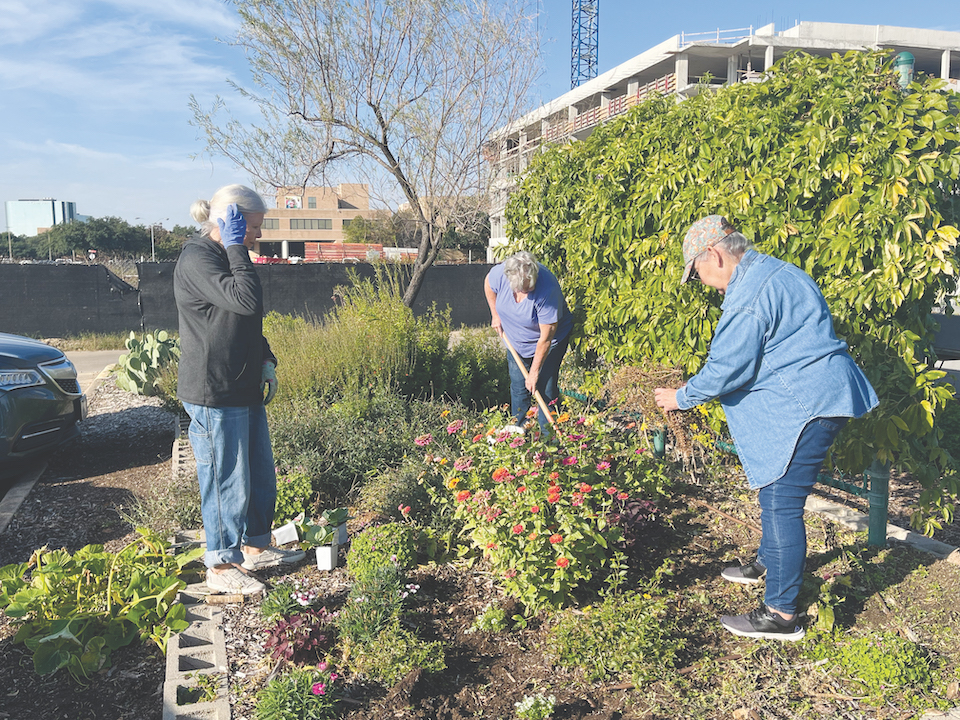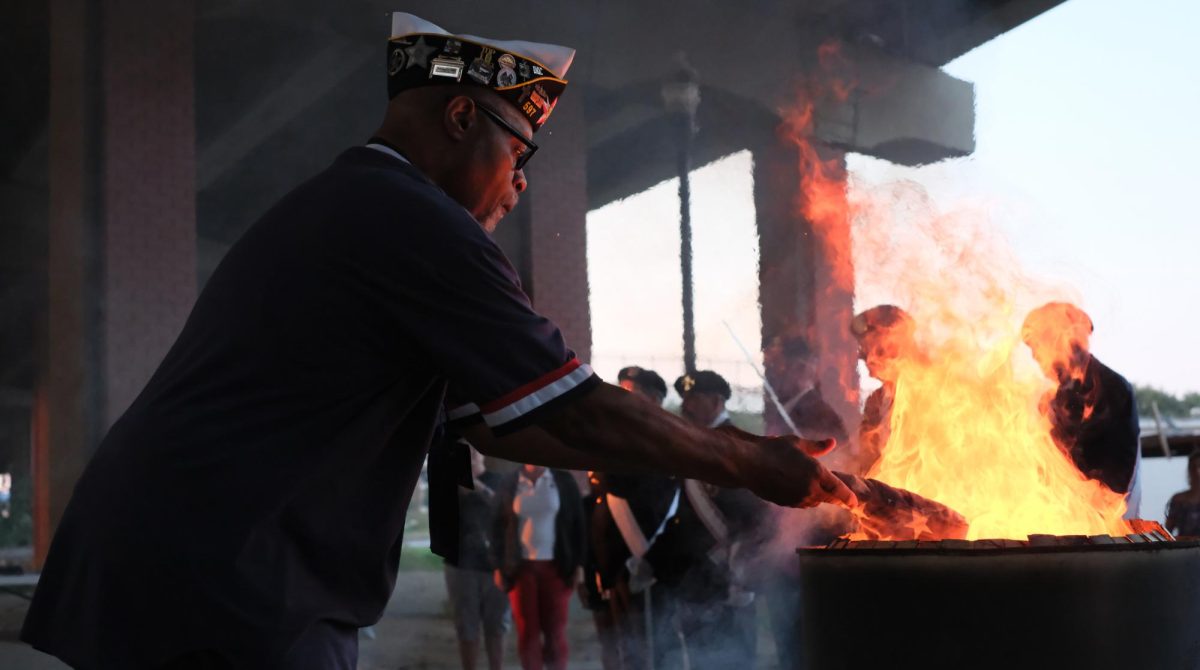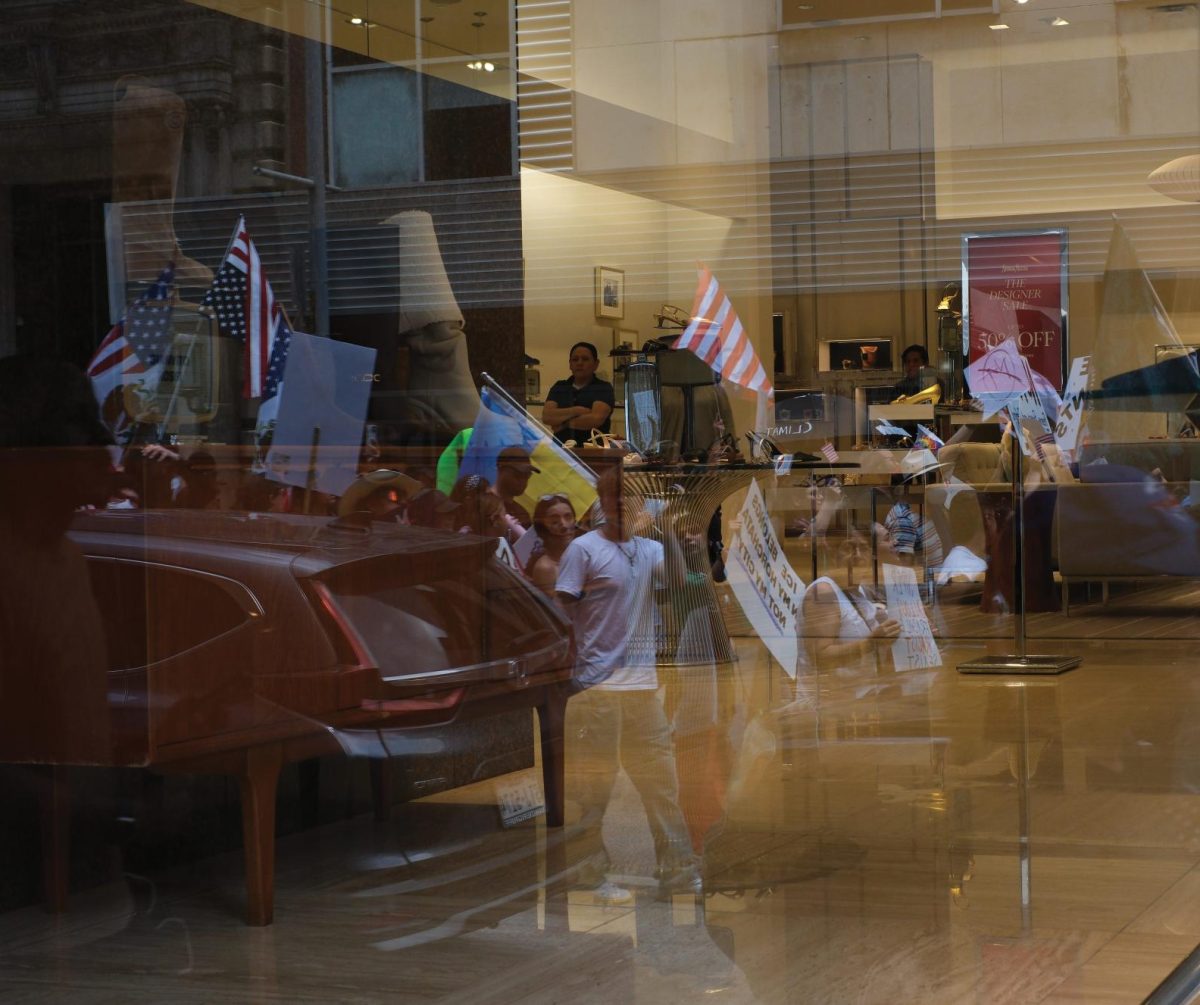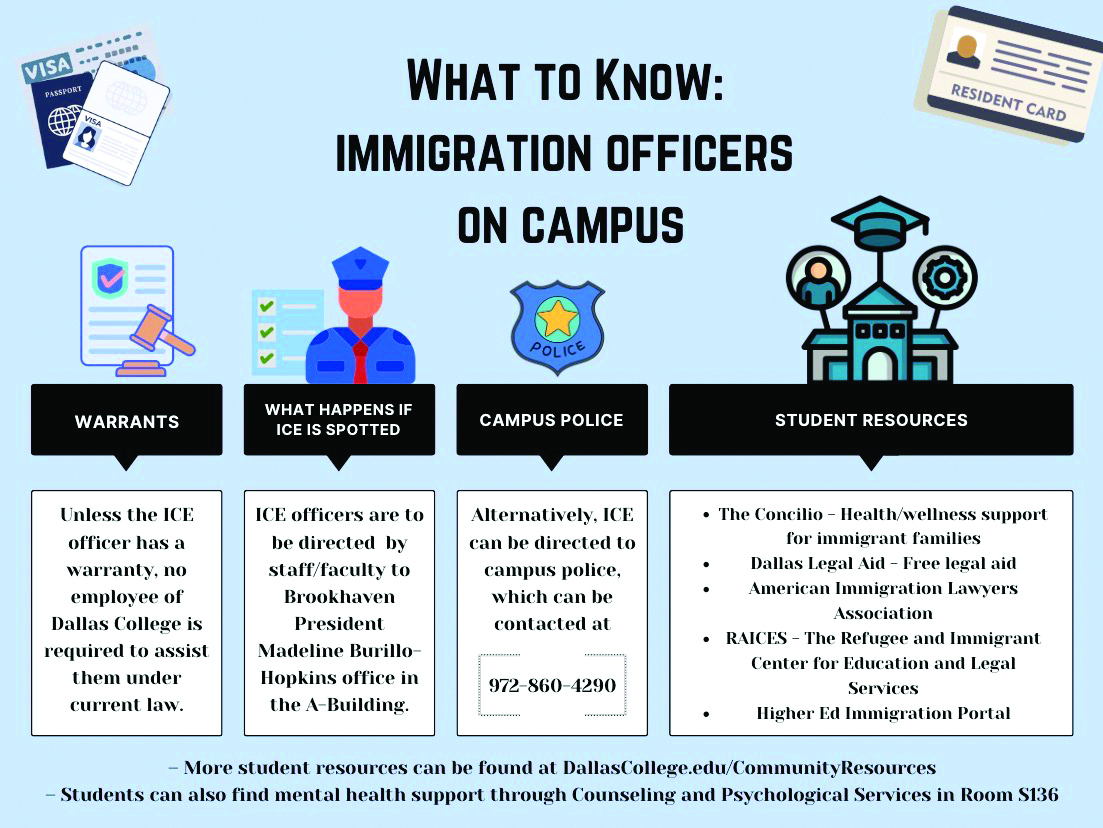Blackberry vines, fresh okra, sweet potatoes and fruiting persimmon trees are just some things growing at the Farmers Branch Community Garden. However, even with all the various fruits and vegetables growing behind the Chapel Hill United Methodist Church, it is the impact on the local community that shines through the most.
Community gardens overflow with benefits, spilling out to the surrounding community.
A spirit of community building and camaraderie can be found at the Farmers Branch Community Garden.
Friendships have blossomed alongside the fruit. The local gardeners often help each other with their plots, give advice and provide general support.
Benjamin Solis, Farmers Branch parks and recreations supervisor, said: “The people that are there enjoy helping each other, and that’s what makes the community garden. Whether it is a garden or school or work, it is really all about people. How you connect with people, whether it is at a garden, physically, or through the internet or social platforms, it is learning to adapt to the situations that the people are in and helping each other. I think that is what they love about the garden.”
The garden has thrived for over 15 years. Solis was there in 2008 when it all came together as a joint venture between the church and the city. Solis said the property belongs to Chapel Hill Church but leased it to the city covering three-fourths of an acre with 60 4×20 foot plots.
Donations made from harvested produce are another aspect the gardeners and receiving community enjoy.
Solis said gardeners are required to donate 25% of their harvests, with those donations going to the food pantry at Metrocrest Services. In a year that can add up to a couple thousand pounds in donations. In 2022, they nearly reached 3,000 pounds.
“In the spring and in the fall when we have big harvests, we have over 100 pounds twice a week,” gardener Patti Williams said. She is part of a group of six who harvest for the food bank. They spend a couple of hours every Wednesday and Saturday gathering the ready crop into bags and boxes to be transported. On Oct. 7, Andrea Rains, one of the gardeners from the original 60 plots, volunteered to make the drive, delivering over 40 pounds of produce to Metrocrest where they are cleaned and distributed.
With food prices rising in the last few years, safe, fresh and healthy produce is often inaccessible to individuals and families.
Shanelle Tennyson, a Dallas College student majoring in holistic medicine and permaculture, said she wants to start a gardening club at Brookhaven Campus and partner with the community garden for this very reason.
“There’s an endless trope of starving college students,” she said. “Because it is a real thing. We are hungry. We are hungry. Does not matter if you came straight out of high school, or if you are like me, returning to school after a decade of not being in school.” Shanelle said a gardening club with a plot or two could provide the campus food pantry access to fresh fruits and vegetables.
In the meantime, eligible visitors can find fresh produce from the Farmers Branch Community Garden at Metrocrest Services in Carrollton and visit the Dallas College food pantries for additional food needs.
In the garden plots, gardeners plant a variety of fruits and vegetables. Tomatoes, peppers, squash, onions and corn are among some of the vegetables found throughout the seasons.
Solis said: “We’re currently switching into the fall vegetables, which will be your spinach and lettuce, and Swiss chard, peas and carrots. Really, whatever vegetables they think they can grow, they can. It’s their plot to manage.”
The garden also holds a small orchard which includes pear, apricot and apple trees. Surrounding them are fences lined with grape, blackberry and strawberry vines. “I’ve never had a fresh fig until that tree put on figs,” Tennyson said. “I discovered I liked figs. The only other time I had anything fig-like was a Fig Newton.”
Interested students who go to school at, live in, work in or are associated with Farmers Branch can fill out an application for their own plot. Applicants must pass a criminal background check.
There is also a $25 annual fee that goes toward covering seeds and shared tools, which are all provided alongside the expertise of master gardeners.
But Solis said do not expect to start gardening right away. There is a waitlist, and it can extend out as far as six months. Solis said sometimes he expects applicants will have forgotten they are on this list. “When I finally contact the people and ask them if they still want to be part of the garden, they are so excited,” he said.
It is not just a hobby, Solis said. It is important to remember it is an all-year commitment.
Recently, the garden partnered with Dallas County Health and Human Services. They received a grant that paid for supplies, such as seeds, soils and compost.








